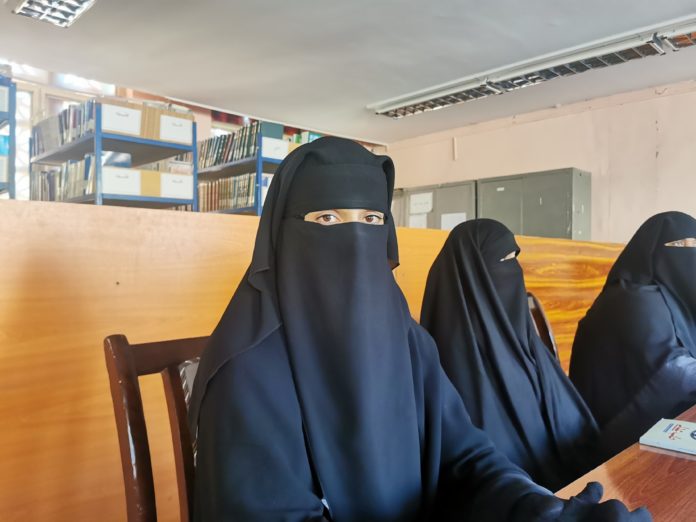
The Afghan authorities have banned women from university education until further notice.
A letter by the cabinet of ministers, confirmed by a spokesperson for the higher education ministry on Tuesday, instructed Afghan public and private universities to suspend access to female students immediately.
“You all are informed to immediately implement the mentioned order of suspending the education of females until further notice,” said a letter issued to all government and private universities, signed by the Minister for Higher Education, Neda Mohammad Nadeem.
The spokesman for the ministry, Ziaullah Hashimi, who tweeted the letter, confirmed the order to several news agencies.
However, there is confusion over whether the order is temporary or permanent. Some Islamic Emirate supporters say such restrictions have been done to preserve “national interest” and women’s “honour,” and say the education ban is only temporary because of a lack of funds and the time needed to remodel the syllabus along Islamic lines.
Sheikh Hadith Nida Muhammad Nadeem, one of the IEA religious leaders, said: “The leaders of the mujahideen nation are especially angry with me because of the ban on girls’ education, while this is the order of the Messenger of Allah, peace and blessings be upon him, Islam does not allow women to use education for sexuality. A woman is a man’s farm, and man’s service is obligatory on her, not education.”
5Pillars spoke to several Afghans who gave us the following reactions:
Subscribe to our newsletter and stay updated on the latest news and updates from around the Muslim world!
Atiqullah Omid, a citizen of Afghanistan, said: “All the professors of both the education department and the higher education department should leave their duties if they really have patriotism in them and the male students should not attend their classes due to a strike.”
Abdali Kunduz said: “The decision of the Ministry of Education should be respected, no matter how wise it is. Obedience to the leader is obligatory. Obedience is obligatory for all.”
Meanwhile, Gulbdin Hekmatyar, the leader of Hizb-e-Islami, said that this decision is so irrational that the current government officials are unable to justify it.
The U.S. special representative for women in Afghanistan said that the banning of girls from universities and schools by the Taliban eliminates the doubt that the “group is returning to the extremist policies of the 90s.” Rina Amiri added that the international community should take a decisive position against the “extremist policies of the Taliban.”
The National Security Adviser of the former occupation government said that the Taliban has once again proved that it has not changed with this “oppressive decision.” Hamdullah Mohib wrote in a tweet: “The propaganda about the Taliban’s change of mind was a deception of the people to take power, which we strongly objected to.”
The announcement came as the United Nations Security Council met in New York on Afghanistan. The United States and British UN envoys both condemned the move during the council meeting.
“The Taliban cannot expect to be a legitimate member of the international community until they respect the rights of all Afghans, especially the human rights and fundamental freedom of women and girls,” US Deputy UN Ambassador Robert Wood said.
Since coming to power in August 2021 the Islamic Emirate has been gradually implementing laws which they say conform to Islam’s rulings on gender issues.
For example, women are barred from going on longer distance journeys without a mahram.
Teenage girls have still not returned to school in most of the country, despite promises to allow them to do so.
While some women still work in sectors such as healthcare and education, most were told not to go to work after the Islamic Emirate was established.
And in May a decree was passed ordering women to wear the Islamic face veil in public, although some in urban areas are still failing to comply.
Western diplomats have indicated to the authorities that resuming development funding for a country in deep economic crisis “depends on the treatment of women improving.”
5Pillars editor Roshan Muhammed Salih interviewed Afghan women in a Kabul university last year. Watch his report here.






















